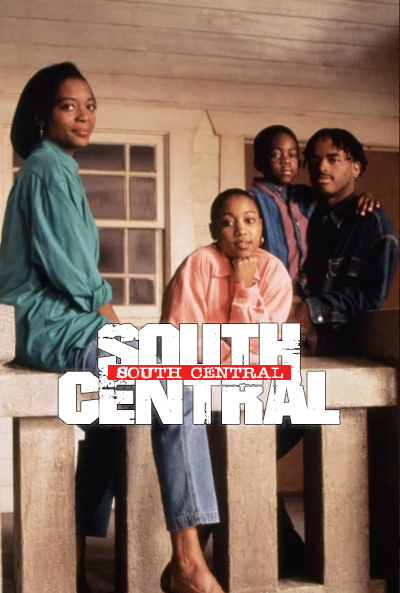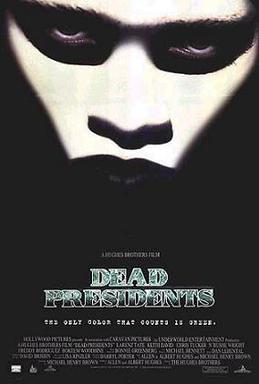Welcome to Retro Television Reviews, a feature where we review some of our favorite and least favorite shows of the past! On Thursdays, I will be reviewing South Central, which aired, for 10 episodes, on Fox in 1994. The entire show is currently streaming on YouTube!
This week, South Central comes to an end.
Episode 1.9 “Dog”
(Directed by Stan Lathan, originally aired on May 31st, 1994)
Deion finally gets to be the focus of an episode and it’s seriously, the most depressing 30 minutes ever.
After eight episode of never speaking and never smiling, Deion is briefly happy when a stray dog follows him and Andre home. Deion loves playing with the dog and he even starts to bark just like the dog. Joan, however, is not happy about the idea of having the dog in the house. As she sensibly points out, they don’t know if the dog is sick and dog’s are expensive to keep. Still, when she sees how Deion loves the dog, she says that the dog can stay as long as he doesn’t make a mess in the house. Andre agrees to watch over the dog.
Joan leaves for the Co-op, where Bobby has declared the day to be “Black Dollar Day.” Of course, as soon as Joan does leaves the house, the dog makes a mess on the floor. Neither Andre nor his friend Rashad are willing to clean it up, with Andre is more concerned with calling Nicole and begging her to take him back. Finally, Tasha’s friend Shanelle (Shar Jackson) cleans up the mess because she wants to get together with Andre. However, Andre rejects Shanelle, telling her that she needs to have more respect for herself. (Andre wasn’t too concerned about Shanelle’s self-esteem when she was cleaning up after the dog for him.) Later, Andre and Tasha catch Shanelle and Rashad fooling around in Joan’s bedroom. This leads to multiple fights and the dog getting so agitated that it bites Shanelle.
The end result is Shanelle goes to the hospital, animal control takes away the dog, and Deion is left without his only friend. The next morning, Deion steps out of the house and stands on the sidewalk, barking like a dog.
My God, what a depressing show! But I should also add that it was a remarkable well-acted episode, especially the scene in which Joan explained to Deion that the dog wouldn’t be coming back but that the dog was okay and still cared about him. Seriously, I’m tearing up just writing that and I’m not even dog person.
Let’s move on to the series finale.
Episode 1.10 “Date”
(Directed by W.E. Baker, originally aired on June 7th, 1994)
Joan orders Andre and Rashad to take Tasha to the Ujamaa Hi-Life and pushes Deion onto Sweets so that she can have the house to herself for a night. However, almost as soon as the kids leave, Ray (Ken Page) shows up. (Yay! Ray’s back!) Ray sweetly asks Joan if she would like to have dinner with him. They head out to the local catfish place but they discover that there is a 45-minute waiting time for a table. Except …. OH MY GOD, IT’S ISAIAH! Isaiah (Michael Beach) explains that he is friends with the owner of the restaurant and he always has a table. Isaiah invites Joan (and, by extension, Ray) to have dinner with him.
Needless to say, dinner is a bit awkward, with Ray and Isaiah each mentioning that they own multiple homes and tying to impress Joan. Isaiah is as much of a charming jerk as he was the last time he went out with Joan. Ray, once again, promises to always be there for Joan and Andre despite the fact that Joan is obviously not interested in him. As bad as I do feel for Ray, he should realize by this point that Joan doesn’t share his feelings. You can’t create chemistry where there isn’t any.
Meanwhile, at the Co-Op, Rashad and Andre look for dates (which I guess means that Andre is over Nicole) and Tasha eventually cheers up when she gets to perform on stage.
To be honest, it’s a bit of an underwhelming ending for a show that featured so many powerful episodes. The finale feels far more conventional in its humor than the previous episodes and that probably has something to do with the fact that this was the only episode of South Central to not be directed by Stan Lathan. The finale feels more than a bit off when compared to what came before but, at the same time, it’s nice that the show ended with Tasha finally getting a moment to be the center of attention.
South Central only ran for ten episodes and it’s easy to see why it struggled in the ratings. For a comedy, South Central could be a very dark show. There weren’t a lot of standard happy endings to be found in South Central and even the upbeat finale left viewers feeling that things were only going to get more difficult for the Mosely family. Joan is still going to be working herself to death at Ujamaa. Andre is still going to often be his own worse enemy. And, even after performing in front of the entire community, Tasha is still going to be the one who is always expected to sacrifice to help out around the house. This show was all about the small moments of happiness that can be found even in the most difficult of circumstances. Ultimately, though, those moments can only take you so far.
Next week, just in time for October, we start a new Thursday show and it features a ghost! Are you ready for …. Jennifer Slept Here!?





